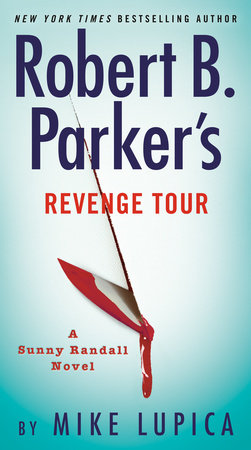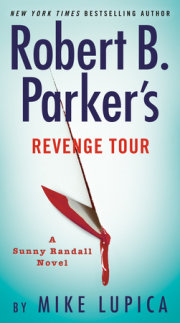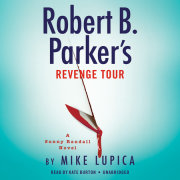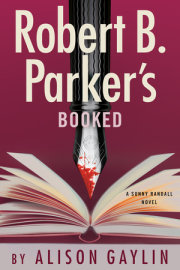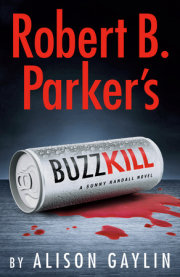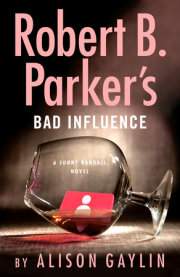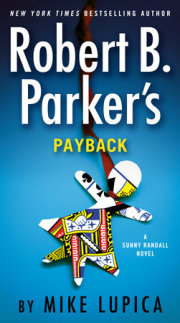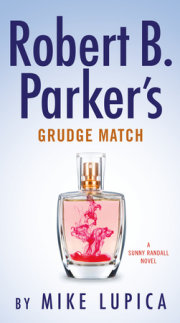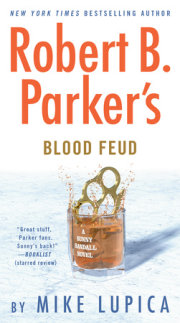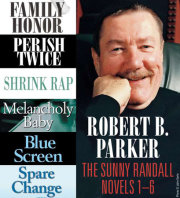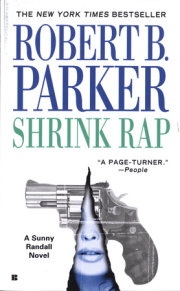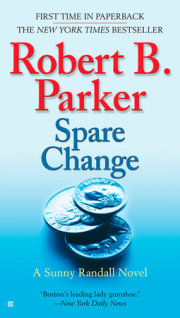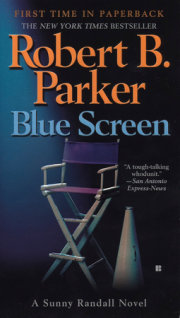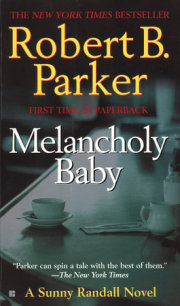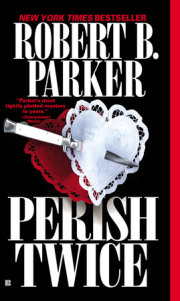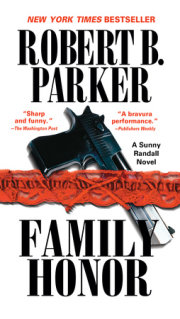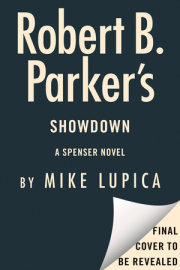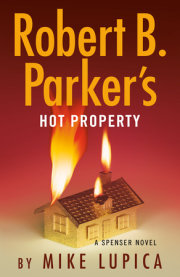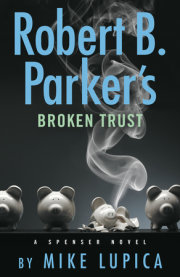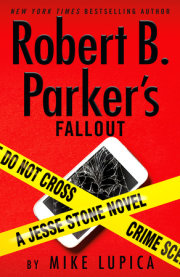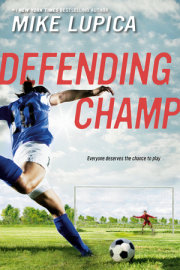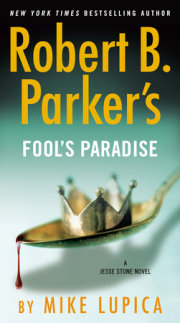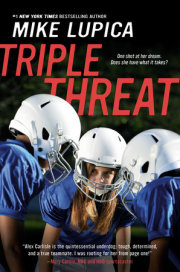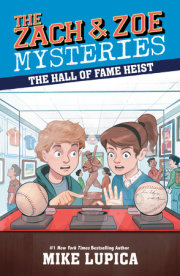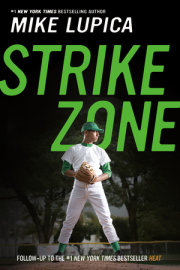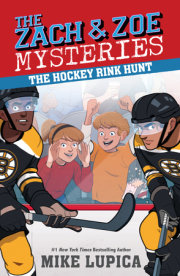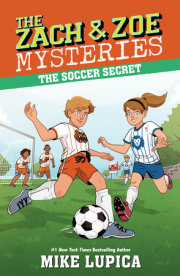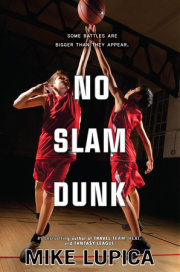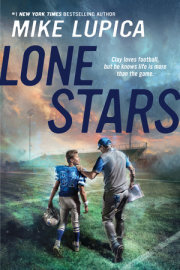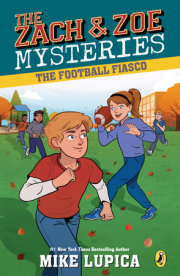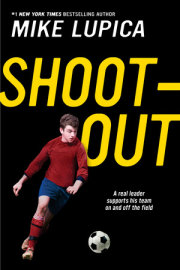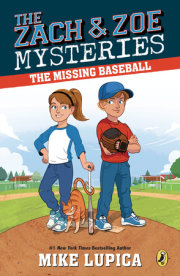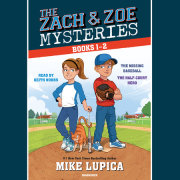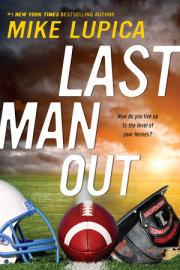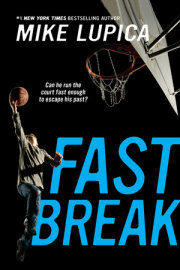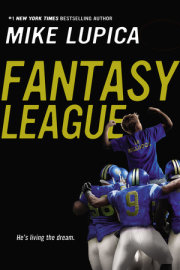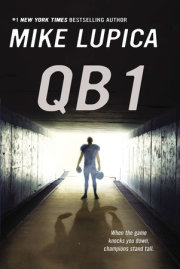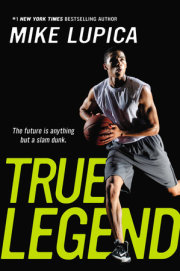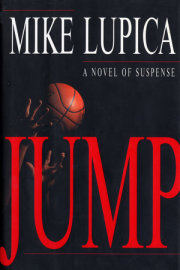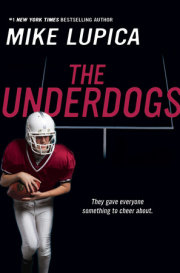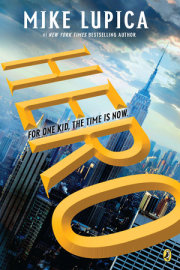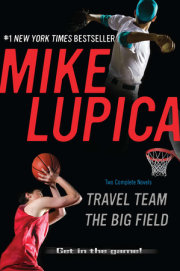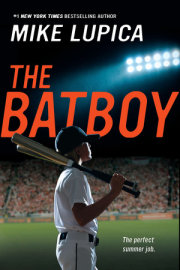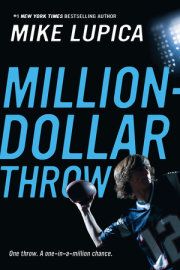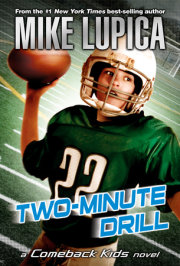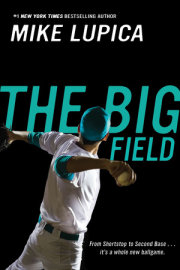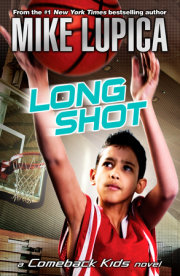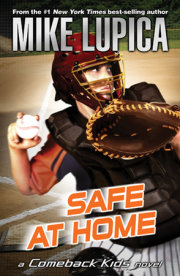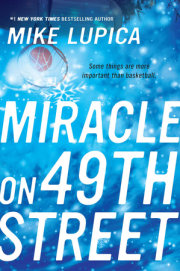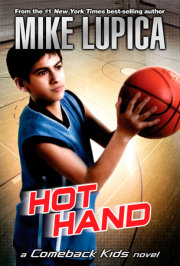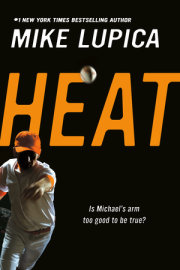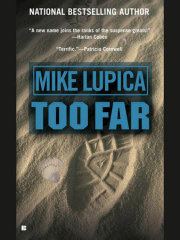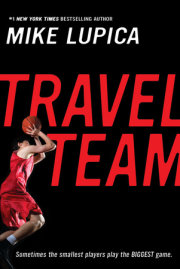One
I don't know why they just couldn't leave well enough alone," Phil Randall said to me.
"Dad," I said, "I'm pretty sure you said the same thing when they broke up the phone company."
We were seated at a window table in The Street Bar at The Newbury, which had been the old Ritz before it became the Taj. Then one of the big hotel chains had bought the property and closed it down for a couple years and done a renovation that I was certain had cost more than Bill Gates's divorce. When I'd learned the dollar figures on both of them, I'd idly wondered how my life would have turned out if I'd married one of those men, and not a child of the Boston Mob.
We were drinking martinis just because it seemed to be the thing to do. The quality of the martinis at The Street Bar hadn't improved as much as the condition of the hotel, which really had needed one of those extreme makeovers. But the quality of the martinis hadn't diminished, either. My father had told them to use Beluga Gold, informing me as he often did that you only live once.
"Don't get me started on phones," he said. "I liked the world a lot better when the only things I needed when I left the house were a gun and badge, and not an iPhone ninety-nine."
He had been one of the best and most decorated detectives in the history of the Boston Police Department. And still thought of himself as a cop. And, bless his heart, always would.
"Think you might be slightly off on your math there," I said. "I think we're only working on the iPhone fifty at this point."
"I am making a larger point about the modern world," he said.
"As you so often do."
"Let me tell you another thing about cell phones," he said, shaking his head disgustedly. "Text messaging is the devil's handiwork."
I grinned at him, an almost permanent condition for me when in his presence. "How do you feel about apps?"
"App this," my father said.
He drank. I drank. It was the height of the cocktail hour, but I knew the bartender from when the place was still the Taj. So we had scored the best of the handful of window tables in the place. Every other table was occupied. So were the stools at the bar, on the other side of the room, to your left as you walked in from a lobby far more ornate than it had been before. No more masks. No more social distancing. Somehow it made everything in a wonderful old capital of the Back Bay feel new again, which is exactly what the owners of The Newbury had been shooting for, on a rather grand scale. I hadn't priced out the rooms, but suspected that before booking one I would have had to sell jewelry if I wanted the weekend package.
"And I frankly don't understand why they had to move the entrance to the hotel around the corner," Phil Randall said.
"If they hadn't," I said, "we'd be sitting at The Arlington."
"Cute," he said.
"You've always thought so."
"You better believe it, kid," he said.
We raised our glasses at the same moment. He smiled at me. His smile was either elfin or impish, I'd never been able to decide which best described him. Truth was, the cute one was him.
"At least the view from here remains the same," he said, staring across Arlington at the Public Garden.
"Well," I said, "until they build that cell tower they're thinking of building next to the statue of George Washington."
"Is that supposed to be funny?"
I said, "Apparently not."
He wore a tweed Brooks Brothers jacket and a button-down blue shirt with the Brooks roll to the collar and a bright red silk tie and pocket square to match the tie. He smelled of bay rum. He was getting older, it was happening more quickly than I would have wished. Just not older to me.
I noticed him looking past me now at the entrance to the bar, frowning, as if suddenly putting his cop eyes to use.
"What?" I said, swiveling my head around.
"Nothing," he said. "Just thought I saw someone I know."
"Friend or foe?" I said.
"Little bit of both," he said, then dismissed the subject with a wave of his hand. "But then my vision isn't what it used to be."
"Like hell it's not," I said.
And we drank. I was so happy to be at this table, in this room, with him. I wasn't all that keen on the male species these days. But Phil Randall was a notable exception. As was Spike.
It was as if my father were reading my mind.
"How's Richie?" he said.
Richie Burke. Ex-husband.
"We had dinner the other night," I said. "He wants to start dating again."
"Good!" my father said.
"I told him no."
"Why would you do something as shortsighted as that?"
"Because I don't want for us to get back together," I said. "At least not in that way. And it's time for me to meet somebody new."
"Well," he said, "a father can hope."
"Despite half a lifetime trying to put his father in jail," I said.
Desmond Burke. It was silly to think of him as being the head of the Irish Mob in Boston. At this point in time, he was the Irish Mob in Boston.
"Don't take this the wrong way," Phil Randall said, "but you aren't getting any younger."
"I'm sorry," I said. "Is there a right way for a girl to take that?"
I rose out of my chair just enough and leaned across the table to kiss him on top of his head. Yup, I thought. Definitely bay rum.
"I just think you need a man in your life," he said.
"Okay," I said, "that's it, you're under arrest, in the name of modern women everywhere."
He laughed. I laughed. As always, he made me feel that everything was going to be all right, whatever happened to be going on in my life.
"I just remembered," he said, "you told me you had something you wanted to tell me about a new client."
"As a matter of fact, I do," I said. "A new old one. Like the hotel."
"And who might that be?"
"Melanie Joan Hall," I said.
"Your landlord?"
"I think she prefers best-selling, world-famous author," I said.
"Isn't she the one who nearly got my baby girl killed that time?"
"One and the same."
"So what's the good news?" my father said.
Two
Before we left the bar I tried to correct the record with my father about what had actually transpired when I had first been hired by Melanie Joan Hall.
She was being stalked by an especially creepy ex-husband with even creepier sexual tastes. But Richie and I had teamed up to finally take him down, and an equally dangerous friend along with him, when they tried to drug and assault me, not knowing I had shown up having taken an antidote.
"Good times," Phil Randall said drily.
But Melanie Joan had shown her undying gratitude to Rosie the dog and me by allowing us to rent her four-story town house on River Street Place, where, legend had it, ship sails had been woven in the long-ago. Melanie Joan had once again fallen in love at that particular moment in her life and had gone Hollywood, something that seemed as inevitable to me as the phases of the moon. She wanted me to live in the town house rent-free. I told her I couldn't do that. She finally established a ridiculously low figure as an alternative and wouldn't take no for an answer. Saying no to Melanie Joan, queen of the bodice-ripping romance novels and founder of what called itself, without the slightest hint of irony, the Ardor Channel, was like trying to stop the rain.
So she had gone off years ago to, in her words, put even more tinsel in Tinseltown, and Rosie and I had lived at the foot of Beacon Hill ever since.
"Tell me she doesn't want her house back," my father said, "even though your mother has kept your room as you left it."
"Just neater, I'm guessing."
"There's that."
"You're too old to move back home," he said.
"And, in your view, not getting any younger."
He waved for the check. I told him this one was on me. While we waited I explained to him that the Ardor Channel, the mention of which always made him giggle, was about to start shooting a new series based on Melanie Joan's most recent book, the first one set in the modern world, one chronicling the adventures of the great-granddaughter of her signature character, Cassandra Demeter, the spunky and extremely frisky girl from the wrong side of the tracks in Boston who had made it into the thick of Brahmin society at the turn of the century. With and without her clothes on.
"Your mother loves those books," my father said. "God save us and protect us."
"Melanie Joan is actually staying here at the hotel," I said. "I'm meeting her for dinner at Davio's."
"You two walking over together?"
"What, and spoil her entrance?"
"She should have joined us for a drink," he said.
"Would have cut into essential prep time for hair and makeup and wardrobe," I said.
"Why does she need you this time?"
"Says she has a problem only I can help her with."
"Hopefully not one that puts you in harm's way."
I sighed. "I can take care of myself."
"If I had a nickel," Phil Randall said.
When I'd signed the check, I saw him once again staring over at the entrance to The Street Bar again.
"You okay?"
"Never better," he said.
He had parked in a lot at Exeter and Newbury, saying the walk would do him good, he could get some air and walk off the vodka before he got into the car. I told him I was going to take a stroll through the Public Garden before making my way back to Davio's.
I kissed him on the cheek when we were outside and standing in front of the new entrance to the hotel.
"You're sure you're okay?" I said.
"I just told you I was," he said. "And you know I never lie to my baby girl."
While I waited for the light to change on Arlington, I turned around, already smiling, expecting to see my father's jaunty walk as he made his way down my favorite walking street in the whole city.
But he was already gone.
Wherever he was going, it wasn't to his car.
And as for him never lying to his baby girl, it would turn out that there was a first time for everything.
Three
Of course, Melanie Joan had arranged for us to be seated at a table that seemed to be the exact geographic center of the front room, in the most visible and best-lit part of Davio's. Of course, she showed up a half-hour late.
While I waited alone at the table, I pondered the fact that this was what passed for a big night out for me these days, first with my father and now with the author of her current best seller, Burning Excess.
When Melanie Joan did finally show up, I saw that she had on a bright red dress and a hat I could have sworn had been worn by the woman whose horse had recently won the Kentucky Derby, and won Spike a whole pile of money in the process.
It was like every entrance I'd ever seen her make, into any room, including the ladies' room. I wasn't sure how many people in the room knew exactly who she was. Just that she was Somebody. At least some of the women turning their heads to follow her slow progress toward our table on the arm of the manager, Armando, surely had to recognize their favorite author, whether they admitted that or not. It was unlikely that any of the men did. Martha Stewart probably had more male readers than Melanie Joan Hall did.
"Please sit down!" Melanie Joan commanded when I stood to greet her, rising up out of what must have looked to the room like a supplicant's chair. "I don't want everybody to think I'm having dinner with my daughter."
She quickly air-kissed me in the general vicinity of both cheeks. I couldn't identify her scent as easily as I had my father's, just knew instantly that it was pretty damned wonderful.
We had been given a table for four. Melanie Joan took off her hat and placed it on the chair next to her. Somehow not a single hair was out of place after she did.
"You look beautiful, Melanie Joan," I said to her.
She smiled, almost sadly, I thought.
"What was it that Scott Fitzgerald said at the end of Gatsby?" she said. "We beat on, boats against the current, borne back ceaselessly to our plastic surgeon."
"Pretty sure it's borne back into the past," I said.
"Oh, don't I wish, darling."
It had been more than two years since I'd last seen her, when she'd stopped in Boston on her last book tour. I assumed she'd had more work done since then, but, as always, it had been artfully done. Being a trained detective, I knew how old she was, and at the same time knew how difficult she'd made it to find out her actual age online.
But to be in the age range she very much wanted people to think she was, only sneaking up on AARP, her first novel would have to have been published when she was in the third grade.
It was clear, once the small talk began, that she would be taking her time telling me why we were here, despite having made it sound like a matter of life and death.
"How's your cute better half?" she said.
I grinned. "Rosie?"
"You know who I mean."
Apparently everybody except our waiter wanted to talk about Richie Burke tonight. Somehow he was with me even when he wasn't, as if we were together even when we were not.
"Richie's fine. And no, we're not."
"Not what?"
"Not doing what you were about to ask if we're doing."
"And what about your other other?"
"If you are referring to Chief Stone," I said, "he is currently doing what I'm not doing with Richie with a red-haired vixen named Rita Fiore."
"The lawyer?" Melanie Joan said. "I believe I used her one time."
"Well, now Jesse is."
"Now, now," she said. "All's fair in sex and war."
She ordered a cosmopolitan and insisted that I join her. From past experience, I knew it was best to acquiesce. And I'd always thought cosmos were yummy. I knew she would get to what she needed to get to at her own pace. Hey, I thought. She's the writer.
Melanie Joan raised her glass when the drinks arrived and proposed a toast to strong, single woman.
“Yes, to us,” I said, feeling as if I ought to chime in.
“I was only talking about you,” she said.
She put down her long-stemmed glass then. And in that moment, she was no longer the glam queen of Fem Lit and burning loins, as the sculpted and perfectly made up face turned almost solemn.
“So,” she said.
She was staring past me, as if something completely fascinating were happening at the raw bar.
I waited.
“I really am afraid I’m in trouble again, Sunny,” she said.
“Tell me about it,” I said.
“I’d rather not,” she said.
“Force yourself,” I said.
“We can talk about it after dinner.”
“I can manage both,” I said. “I’m the kind of multi-tasker that makes young multi-taskers aspirational.”
“It’s not funny!” she said in a voice loud enough that I saw people at the nearest tables do some head-swiveling.
“I’ll be better able to judge that when I know what ‘it’ is,” I said.
She lowered her voice now, leaned forward. Fewer lines in her forehead than when I’d last saw her. I hadn’t given in to Botox. Yet.
“Someone has accused me of literary theft,” she said.
I let that settle for just a moment before I said, “Who?”
“I don’t know.”
“What do they want?”
“I don’t know that, either.”
Piece of cake, I thought.
Copyright © 2022 by Mike Lupica. All rights reserved. No part of this excerpt may be reproduced or reprinted without permission in writing from the publisher.

